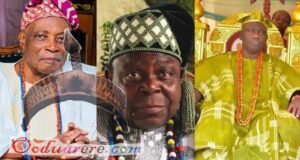Nigeria produces 2.5 million barrels of oil a day based on the OPEC allocation quota for Nigeria as a member state of this organization
By generally acceptable rough estimate, about 100,000 to 200,000 barrels of oil are stolen daily by the oil thieves of Nigeria and sold in those foreign oil black markets of Africa, Asia, South America and Europe leading to an annual loss of between $5 billion to $10 billion from the Nigerian government revenue. The Nigeria’s budgets of 2012, 2013 and 2014 were all based on $77 a barrel of oil, and for those three consecutive years, the Nigeria’s oil sold at about $107 a barrel.
This means that the Nigerian government was making additional $30 a barrel. This extra crude oil money was put in an account which the Nigerian government named the excess crude oil account. From my personal estimate, this account should be $30 billion richer at the moment, but it is has less than $3 billion in it as of today according to the Nigerian government. My question for Nigerians is simply this:what happened to the $27 billion that is now unaccounted for by the Nigerian government from this excess crude oil account?#AssociationOfNigerianLootersInPower – Sunday Iwalaiye.
 Ọmọ Oòduà Naija Gist | News From Nigeria | Entertainment gist Nigeria|Networking|News.. Visit for Nigeria breaking news , Nigerian Movies , Naija music , Jobs In Nigeria , Naija News , Nollywood, Gist and more
Ọmọ Oòduà Naija Gist | News From Nigeria | Entertainment gist Nigeria|Networking|News.. Visit for Nigeria breaking news , Nigerian Movies , Naija music , Jobs In Nigeria , Naija News , Nollywood, Gist and more










